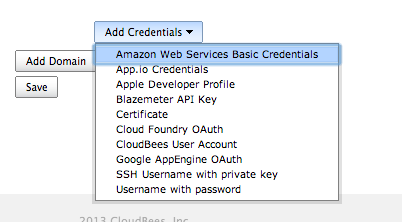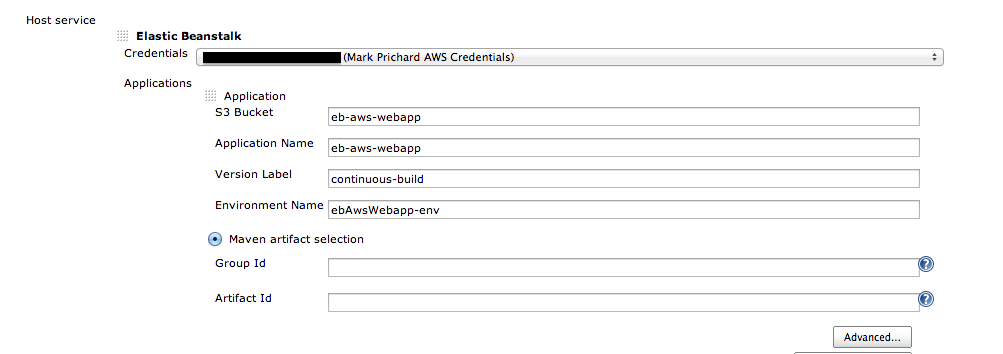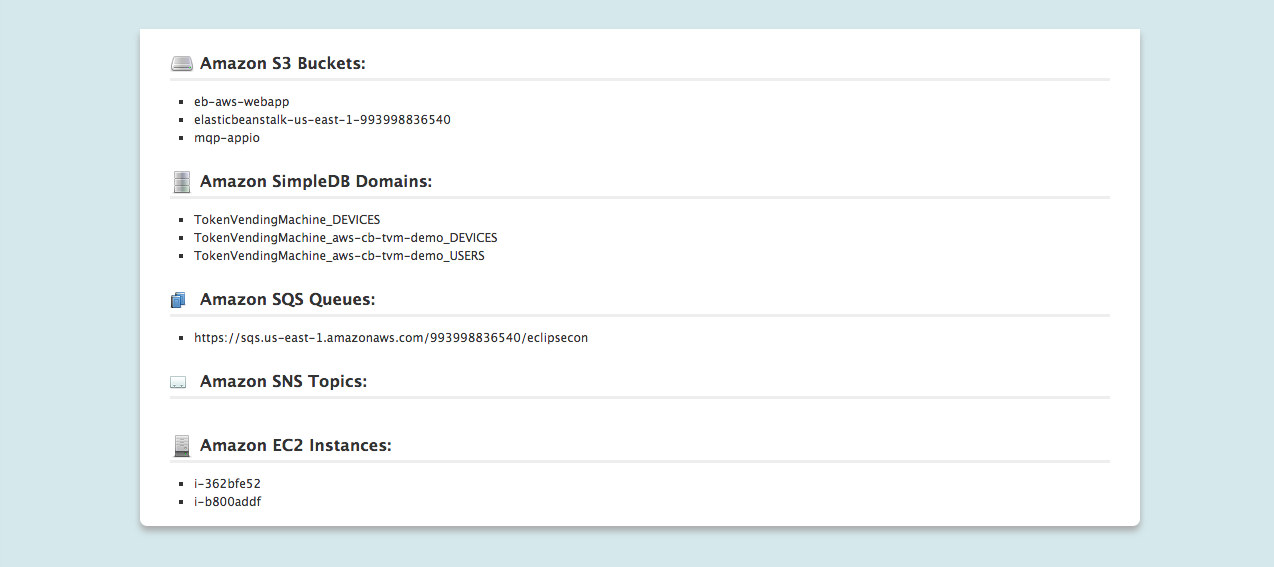CloudBees removed this plugin from the CloudBees Assurance Program (CAP) in January 2023. As an alternative to this plugin, CloudBees recommends using the AWS CLI inside the sh steps within the pipeline. Please contact CloudBees Support if you have any concerns or questions.
|
You can deploy your Java applications to Amazon Web Services Elastic Beanstalk using Jenkins. Although Amazon Web Services Elastic Beanstalk supports multiple languages, the CloudBees deployer only supports Java at this time.
Getting started
To get started, do the following:
-
In the Update Center, navigate to Manage Jenkins → Manage plugins to enable the two new plugins to support Elastic Beanstalk deployment, which you will find under Available plugins:

-
Then, use the Manage Jenkins → Manage Credentials options and add your AWS credentials. Start by identifying the type of credentials you’re adding:

-
Provide the necessary keys to Jenkins so you will be able to access AWS Elastic Beanstalk:

-
Finally, for any job that produces a standard WAR file deploying to Tomcat, use Configure Jenkins, and as a post-build action, choose Elastic Beanstalk as the Host Service for the CloudBees Deployer:

-
Select the AWS credentials that you provided earlier, and configure any parameters associated with the deployment:


